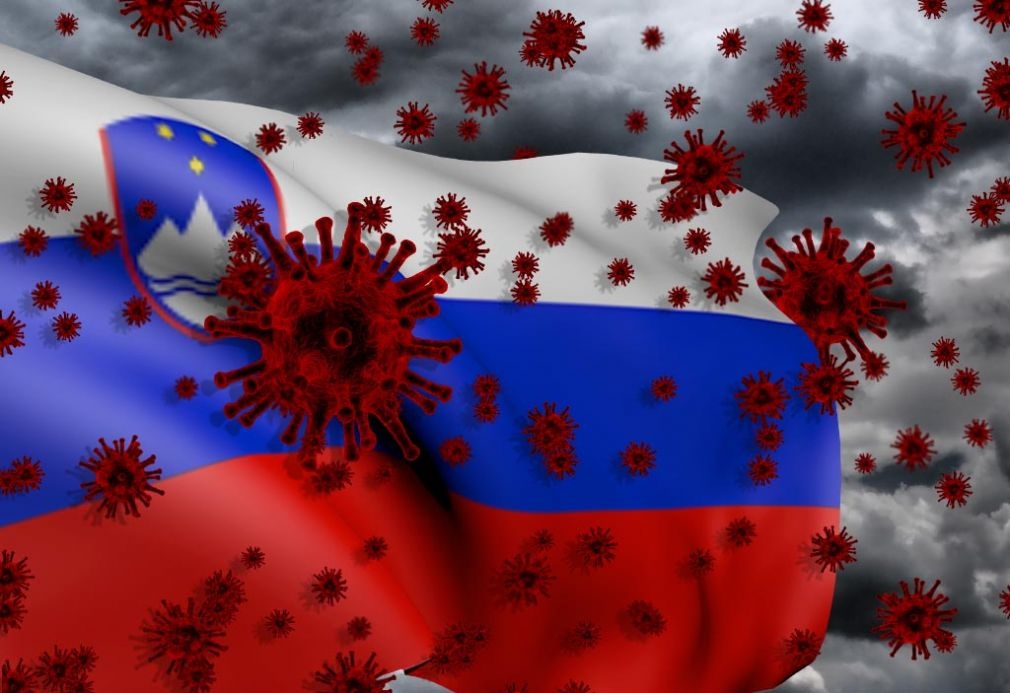By UKOM
Mateja Logar, head of the advisory group at the Ministry of Health; Marko Pokorn, medical director of the Pediatric Clinic of the University Medical Centre Ljubljana; and Mariča Lah, president of Slovenian Chamber of Commerce (TZS), participated at today’s press conference on the current situation regarding the Covid-19 disease.
On Sunday, with 1,625 PCR tests performed, infection with the new coronavirus was confirmed in 205 people; this means that 12.6 percent of all tested were positive. Furthermore, 6,285 rapid antigen tests were performed. Yesterday, 463 people required hospitalisation care (438 the day before), of which 87 were in intensive care. Four people died, three in hospitals and one in a nursing home. The 7-day average number of confirmed infections is 696.
Ireland and the Netherlands suspended the AstraZeneca vaccine due to reports of blood clots in 3 people in Norway.
The cessation of classes or the impact of adverse reaction after administering the AstraZeneca vaccine in 26 teachers of one of the primary schools in Velenje may be due to poor information about the possibility of adverse reaction and thus fear when the adverse reaction occurred, explained Logar. Nevertheless, the proportion of adverse reaction is similar in all three vaccines; therefore, AstraZeneca does not stand out in this regard. Unfortunately, the events in Velenje were followed by vaccination appointment cancellations and the principals’ invitations to postpone vaccination in some primary schools in the Coastal–Karst region.
According to research carried out in the United Kingdom, the effects of the AstraZeneca vaccine in the elderly, over 65 years of age, are equivalent to those in the general population.
Namely, blood clots are more common in women who use birth control pills, and they otherwise commonly occur. In addition, smoking also raises the risk of blood clots. However, these circumstances do not constitute a grounds for discouraging such persons from getting vaccinated.
Pokorn highlighted that according to current analyses, children are less susceptible to coronavirus infection; moreover, many children remain asymptomatic. Based on research and recommendations, children should not wear a mask if they are under 3 years old; however, WHO advises the use of masks for children aged over 6 years of age. There is no evidence on adverse effects of face mask use. After the children returned to school, the Clinic detected several other infectious diseases; therefore, the Covid department as well as the grey zone will remain in place, as they enable the safe diagnosis of various diseases. No final decision on vaccinating children has been made so far. For the time being, Pfizer’s Covid-19 vaccine is authorised in those aged over 16. The vaccine manufacturer is carrying out clinical research for children over 12 years of age, and AstraZeneca for children over 6 years of age.
Lah highlighted that the trade activity had been closed for 7 months since last March; revenues in trade had dropped by more than 10 percent compared to 2019, i.e. by 3.5 billion euros. Similarly worrying is the information that in Slovenia, 11,000 employees lost their jobs in 2020. The change in shopping habits also impacts the reduction in the volume of revenues – the number of purchases per consumer has decreased; however, the average market basket is larger – the Slovenian consumer has become more rational, and purchases have increased during marketing campaigns.
Source: gov.si
